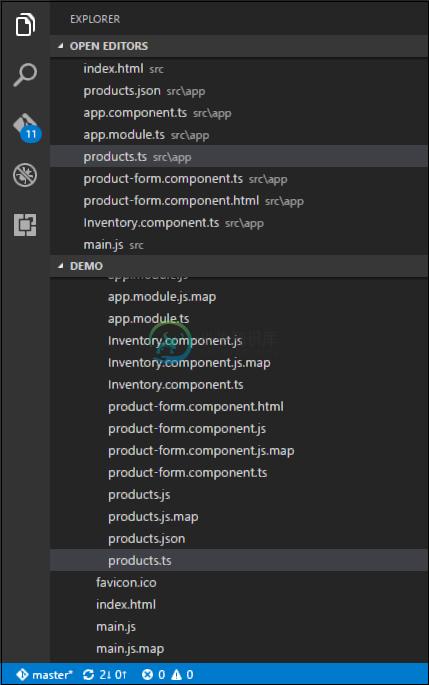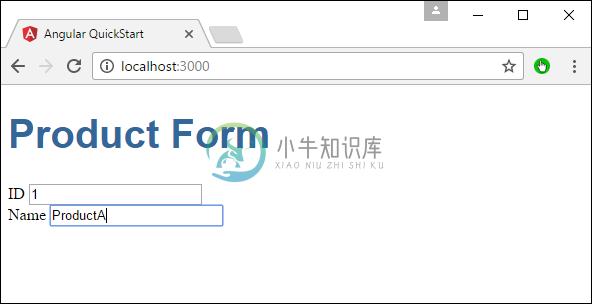Forms
优质
小牛编辑
140浏览
2023-12-01
Angular 2还可以设计可以使用ngModel指令进行双向绑定的ngModel 。 让我们看看我们如何实现这一目标。
Step 1 - 创建一个作为产品模型的模型。 创建一个名为products.ts文件的文件。

Step 2 - 将以下代码放在文件中。
export class Product {
constructor (
public productid: number,
public productname: string
) { }
}
这是一个简单的类,它有2个属性,productid和productname。
Step 3 - 创建名为product-form.component.ts组件的产品表单组件,并添加以下代码 -
import { Component } from '@angular/core';
import { Product } from './products';
@Component ({
selector: 'product-form',
templateUrl: './product-form.component.html'
})
export class ProductFormComponent {
model = new Product(1,'ProductA');
}
关于上述计划,需要注意以下几点。
创建Product类的对象,并将值添加到productid和productname。
使用templateUrl指定将生成组件的product-form.component.html的位置。
Step 4 - 创建实际表单。 创建一个名为product-form.component.html的文件并放置以下代码。
<div class = "container">
<h1>Product Form</h1>
<form>
<div class = "form-group">
<label for = "productid">ID</label>
<input type = "text" class = "form-control" id = "productid" required
[(ngModel)] = "model.productid" name = "id">
</div>
<div class = "form-group">
<label for = "name">Name</label>
<input type = "text" class = "form-control" id = "name"
[(ngModel)] = "model.productname" name = "name">
</div>
</form>
</div>
关于上述计划,需要注意以下几点。
ngModel指令用于将产品的对象绑定到表单上的单独元素。
Step 5 - 将以下代码放在app.component.ts文件中。
import { Component } from '@angular/core';
@Component ({
selector: 'my-app',
template: '<product-form></product-form>'
})
export class AppComponent { }
Step 6 - 将以下代码放在app.module.ts文件中
import { NgModule } from '@angular/core';
import { BrowserModule } from '@angular/platform-browser';
import { AppComponent } from './app.component';
import { FormsModule } from '@angular/forms';
import { ProductFormComponent } from './product-form.component';
@NgModule ({
imports: [ BrowserModule,FormsModule],
declarations: [ AppComponent,ProductFormComponent],
bootstrap: [ AppComponent ]
})
export class AppModule { }
Step 7 - 保存所有代码并使用npm运行应用程序。 转到您的浏览器,您将看到以下输出。


